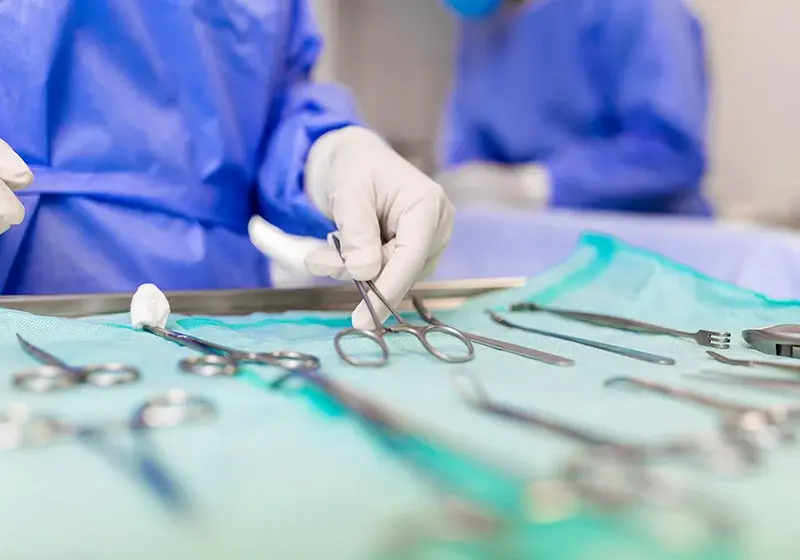- Home
- Blogs
Simple Tips for a Longer Lifespan for Surgical Instruments

When it comes to surgical tools, a little extra care goes a long way toward ensuring they last and continue to play a crucial role in medical procedures. It's not simply a good idea to keep your surgical tools clean and dry; it's also critical to their effectiveness and longevity.
Cleanliness is essential.
Cleanliness comes first and foremost. Take time after each use to gently clean your surgical instruments. Use a mild detergent and warm water to clean off any debris or residue. For delicate areas, a delicate brush can be useful. Rinse the instruments well to remove any soap residue.
Drying Issues:
After cleaning your surgical equipment, make sure it is totally dry before storing it. Moisture can cause rust and corrosion, compromising the instruments' integrity. Simply pat them dry with a clean, soft cloth or set them aside to air dry.
Storage is essential.
It is important to keep your surgical instruments in a safe place. Choose a place that is cool, dry, and well-ventilated. Excessive humidity should be avoided because it can contribute to rusting. Consider using instrument boxes or coverings to keep your instruments tidy and safe. Avoiding contact with other metal objects will keep them from bending or being damaged.
Checks on a regular basis:
Along with thorough cleaning, make it a habit to inspect your surgical instruments on a frequent basis. Examine for evidence of wear, rust, or corrosion. If you find any problems, you must address them right away. Small issues can be avoided by doing routine maintenance on a regular basis.
Why It's Important:
Taking the time to care for your surgical tools is important not just for keeping them in good condition but also for ensuring the safety and well-being of patients. Instruments that are clean and well-maintained contribute to the success of medical treatments and lower the likelihood of problems.
Finally, a little care goes a long way toward increasing the life of your surgical instruments. Clean them well, completely dry them, store them in an appropriate environment, and inspect them on a regular basis. By implementing these easy habits into your daily routine, you are helping to improve the overall effectiveness and safety of medical operations. Your patients, as well as your instruments, will be grateful.